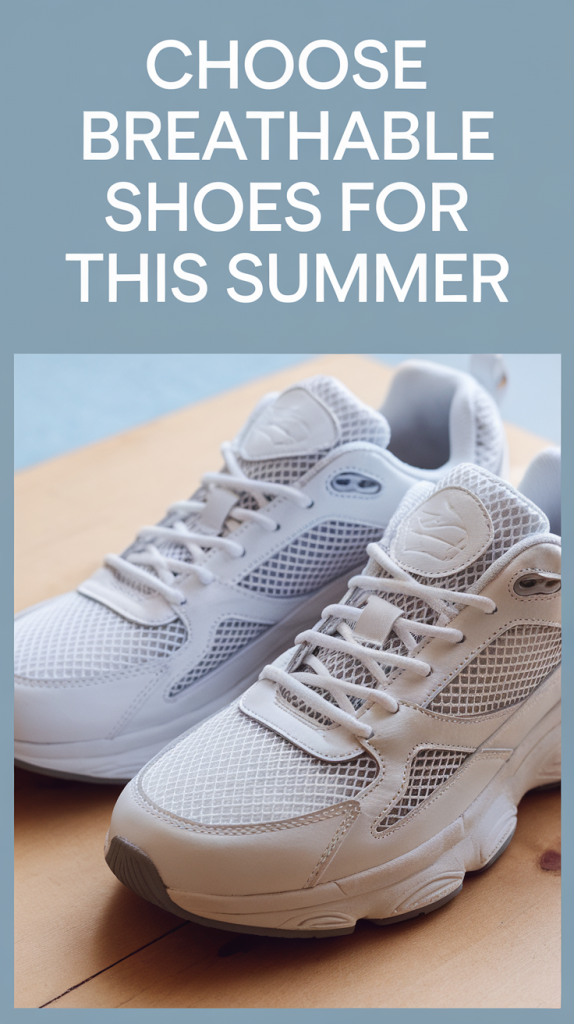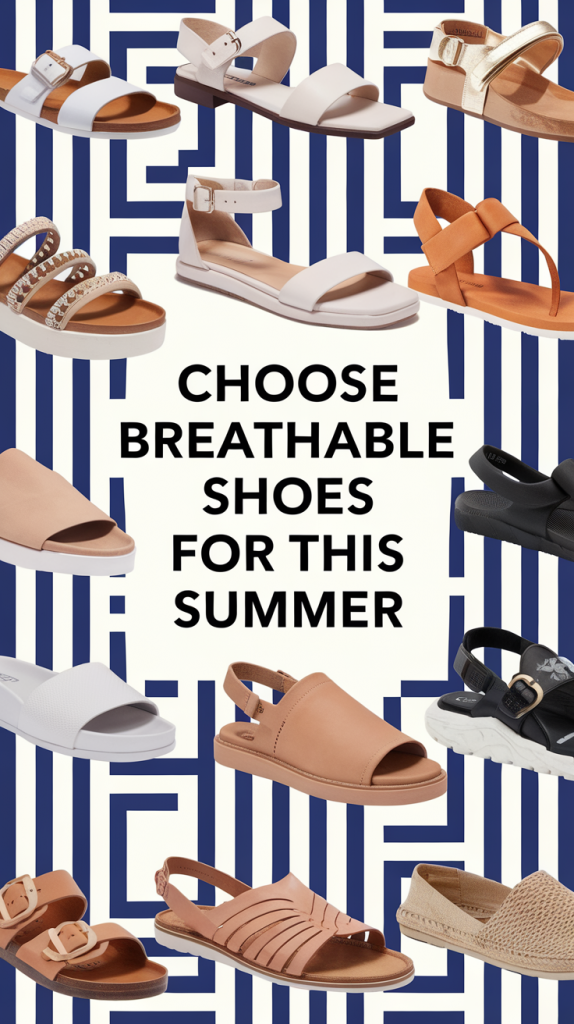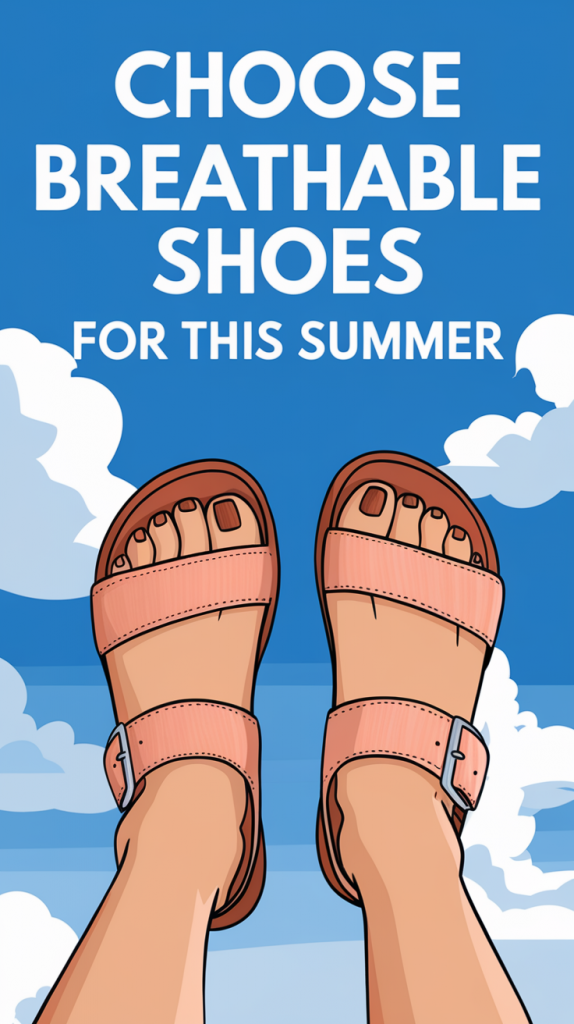Choosing Breathable Footwear: Top Shoe Picks to Keep Your Feet Cool and Happy in Summer 2025
A study displayed that discomfort in the feet affects sixty percent of American adults during hot summer months. Wearing improper shoes during hot days creates a transition from pleasant activities to distress when heat waves persist and activity levels rise. Several unwanted issues, such as foot sweating along with painful blisters and fungal infections, will appear when picking improper summer footwear.
The search for suitable breathable footwear serves three vital purposes: to protect your health and deliver outstanding performance along with gaining confidence. Suspending your feet between support and still getting proper air circulation becomes essential during all summer activities, from dog walks to canyon hikes and simple shopping treks. New technological advancements during 2025 have made it possible for customers to find footwear that combines style with functional performance.
This guide explains the precise method for selecting breathable shoes with cooling effects alongside the most essential features as well as the preferred brands and models in 2025. The article was created with people who experience hot feet in mind. The summer heat can be managed without suffering blisters through our successful footwear choices.

Why Breathable Footwear Matters in 2025
Breathable footwear has become highly popular due to multiple valid reasons. Heat-related foot problems in the United States have increased due to rising summer temperatures because they now affect people from minor discomfort to severe conditions, including athlete’s foot. The temperature problems go beyond what the hot weather produces. An unideal shoe selection causes moisture accumulation, leading to miserable experiences while walking.
The Rise in Heat-Related Foot Problems
Heatwave days result in your feet becoming the first body areas to experience discomfort from such high temperatures. Your feet remain secluded under layers of material since air cannot freely reach them. Lack of ventilation allows moisture accumulation, which leads to swelling of feet as well as odor and creates favorable conditions for fungal infections to develop. People who maintain sneakers throughout the day, together with folks who spend time outdoors, experience this situation frequently.
The 2024 survey conducted by the American Podiatric Medical Association revealed that summer months cause discomfort for 7 out of 10 people in their feet. The research survey showed that foot discomfort among respondents reached 43% because their shoes failed to provide sufficient breathability. The situation calls for innovative footwear selections that yield better performance.

Long-Term Consequences of Poor Ventilation
When you disregard foot wellness, you will experience both immediate foot pain along with long-term health problems. Exposure to prolonged moisture together with heat will damage the skin barrier, creating conditions that favor foot infections and cracks. The specific groups facing foot issues include professional athletes, together with nurses and travelers, as well as individuals who spend many hours standing.
Your shoes likely make your feet experience exhaustion and sweat combined with discomfort due to prolonged wear at the end of each day. Your daily routine would appear differently in the absence of footwear.
Key Features of Truly Breathable Footwear
What elements determine breathability in footwear during the year 2025? The essential elements responsible for breathability include both materials used in construction and design approaches. Beyond the days of open sandals, people can now purchase sneakers and work footwear, plus loafers with active ventilation included.
Materials That Keep You Cool
Here are the top materials you’ll want to look for:
- Mesh is lightweight and allows air to flow freely.
- Knit Uppers—Flexible and moisture-wicking, ideal for walking shoes.
- Perforated Leather—Classic style meets modern airflow.
- Bamboo Fabric—Naturally anti-bacterial and cool to the touch.
- EVA Soles—Cushioning that also allows for air channels underneath.
These materials don’t just let your feet breathe — they wick moisture and reduce internal temperature by up to 10°F compared to traditional synthetics.
Construction & Design Elements
The way a shoe is constructed can make or break its breathability. Look for:
- Ventilation zones around the toe box and arch.
- Moisture-wicking insoles that absorb sweat.
- Open weaves and air holes that encourage circulation.
- Minimal overlays that don’t trap heat.
✅ Quick Breathability Checklist:
- Mesh or knit upper?
- Perforations or visible airflow channels?
- Lightweight sole material?
- Soft, removable insole?
- Lined with breathable fabric (not plastic)?
If your shoe checks at least 3 out of these 5, you’re in a good place. And if it doesn’t? It might be time for an upgrade.

